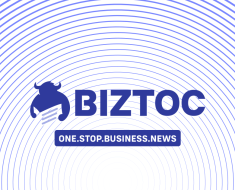In 2023, the healthcare industry was hit hard by a staggering 725 data breaches, exposing the protected health information of over 133 million individuals. As the sector grapples with these growing cybersecurity threats, healthcare organizations are urged to bolster their defenses to safeguard patient data.
The Rising Tide of Healthcare Data Breaches
The alarming surge in data breaches has left the healthcare industry reeling, with sensitive patient information becoming an increasingly attractive target for cybercriminals. This disturbing trend has prompted a call to action for healthcare organizations to fortify their cybersecurity measures and protect the privacy of those they serve.
Legislative Efforts and Technological Solutions
In response to this crisis, legislative efforts have been initiated to improve healthcare cybersecurity. A bipartisan Senate bill, introduced in 2023, aims to address the challenges head-on. Moreover, the use of large language models (LLMs) and automation tools is being explored to streamline hospital processes and aid in clinical decision-making, ultimately benefiting patient care.
“The Four A’s”: A Framework for Turning Healthcare Data into Action
The ‘Four A’s’ framework – aggregation, analysis, activation, and automation – is gaining traction as a means to transform healthcare data into actionable insights. By aggregating data from various sources, such as electronic health records (EHRs), labs, and scheduling data, healthcare organizations can gain a comprehensive view of their operations and identify areas for improvement.
Analyzing this data allows for informed assessments, while activating it through tiered-access structures ensures that relevant information is available to the appropriate users. Automation, in turn, enhances workflows and enables care teams to focus on delivering exceptional patient service.
Companies like Harman and Vizzy are at the forefront of this movement, leveraging healthcare data to create LLMs for hospitals and enterprise clients. These models aim to automate hospital processes and support clinical decision-making by understanding various forms of data, from text and images to audio, video, X-rays, and MRI scans.
For instance, VizzyGPT is a multimodal model capable of processing diverse data types, while HealthGPT, developed by Harman, assists healthcare professionals and institutions in advanced patient care, medical research, and decision-making. By accelerating drug discovery and development and extracting insights from clinical trial data, HealthGPT demonstrates the immense potential of LLMs in revolutionizing the healthcare landscape.
As the healthcare industry continues to navigate the complexities of cybersecurity threats and data management, the power of LLMs and automation tools offers a beacon of hope. In turn, these innovations not only promise to bolster patient data protection but also to elevate the quality of care for millions worldwide.
In the end, the true measure of success will be in the lives touched and improved by the responsible and effective use of healthcare data and technology. This ongoing journey towards a safer, more efficient, and patient-centered healthcare system is one that demands the collective efforts and ingenuity of all stakeholders involved.
Published on 2024-02-15

![[Machine learning: a new direction for assisting the application of deep brain stimulation] [Machine learning: a new direction for assisting the application of deep brain stimulation]](https://aigumbo.com/wp-content/uploads/2023/12/pubmed-meta-image-v2-235x190.jpg)

![AI Rules Tracker: Find Out If Your Court Has Adopted Rules On Generative AI [Sponsored] AI Rules Tracker: Find Out If Your Court Has Adopted Rules On Generative AI [Sponsored]](https://aigumbo.com/wp-content/uploads/2024/01/2e5cb502d3cbec4d935ca1042765dad5ccfe0bc2-235x190.png)
